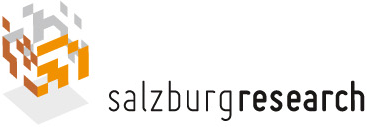Let’s Start Week 2!
This week you will dive into the practical implementation of the DOIT learning programme and learn from workshop examples, in which students between 6 to 16 years olds, the developed prototypes and presented them to school-forum, parents, representatives of local companies or policy and neighbourhood. The examples are derived from settings in schools and outside schools, for 6 to 10 years and 11 to 16 years from Austria, Denmark, Spain, Netherlands, Croatia, Slovenia, Germany and Belgium.
Children of different age groups can learn
- how to solve societal challenges and
- develop a social innovation project in different fields, e.g. future civic society, environment, health, climate change, school innovation or critical technology literacy.
Experienced trainers will guide you
- in designing a suitable workshop design and
- provide practical tips about your very important role as facilitator supporting children in their project work.
How to design social innovation workshops and projects?
We suggest to use the United Nations‘ goals for sustainable development as a basis for addressing societal challenges. In the DOIT-online toolbox you will find more than 10 workshop manuals, each addressing a different societal problem and thus learning theme. The workshop mauals provide you with didactical information and organisational needs, when planning the design of such a social innovation workshop. The manuals guide you also in how to address each step in the innovation project cycle and the DOIT programme.
How did Amsterdam implement the DOIT approach?
Let’s take a look at the video from the DOIT-Team of the WAAG Society, Netherlands and see how they implemented the idea of DOIT into an open learning setting:
Mit dem Klick auf das Bild werden durch den mit uns gemeinsam Verantwortlichen Youtube (Google Ireland Limited) das Video abgespielt, auf Ihrem PC Skripte geladen und Cookies für die Dauer von bis zu 2 Jahren gespeichert sowie personenbezogene Daten erfasst. Mit Hilfe der Cookies ist Youtube in der Lage, die Aktivitäten von Personen im Internet zu verfolgen und Werbung zielgruppengerecht auszuspielen. Datenschutzerklärung von Youtube
What’s the best way to accompany children in their innovation process? What’s your role?
As a so-called DOIT Facilitator you are invited to give up the instructional teacher role and take on more an active coaching role during the workshop. You need as little instructive input as necessary and only prepare for a safe environment and process knowledge of designing and prototyping a solution with different types of material. Children and young people acquire the new knowledge in project-based work as it goes along. Here you find helpful tips for you as a trainer on how you can support the design and innovation project cycle (seven elements).
Practical Tips For Facilitators
Karien Vermeulen, Head of Programme Education at WAAG in the Netherlands, presents you helpful tips for your role as a facilitator in the following video. If you would like to learn more about this topic, you can find more videos in the learning material section!
Mit dem Klick auf das Bild werden durch den mit uns gemeinsam Verantwortlichen Youtube (Google Ireland Limited) das Video abgespielt, auf Ihrem PC Skripte geladen und Cookies für die Dauer von bis zu 2 Jahren gespeichert sowie personenbezogene Daten erfasst. Mit Hilfe der Cookies ist Youtube in der Lage, die Aktivitäten von Personen im Internet zu verfolgen und Werbung zielgruppengerecht auszuspielen. Datenschutzerklärung von Youtube
How you can benefit from other workshop examples – feel invited to use them as open educational resource
This video tells the story of how the new way of training young kids in social innovation can be implemented into a real life setting. As the DOIT programme was already explored throughout Europe, we can offer you some more workshop designs as open educational resources (at the condition of the Creative Common Licence).
They were already held in Austria, Denmark, Spain, Netherlands, Croatia, Slovenia, Germany and Belgium and address a variety of societal challenges: e.g. future of our society, sustainable mobility, environmental challenges (waste reduction, climate change), innovation in a school innovation and designing and prototyping sustainable products and services with data, critical awareness and participation with new technologies, such as artifical intelligence technology and smart wearables. Have a look at:
- Workshop 1: Cycling towards the future
- Workshop 2: Accident prevention in a school
- Workshop 3: Design your future monster
- Workshop 4: Smart bicycle accessories
- Workshop 5: From waste to invention
- Workshop 6: Artificial intelligence
- Workshop 7: Build your future school
- Workshop 8: Designing and prototyping with data
- Workshop 9: Measuring our environment
Test your knowledge and understanding about Making Young Social Innovators!
Quiz Unit 2: How to design social innovation workshops and projects?
 Methodenpool
Methodenpool